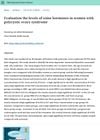 September 2019 in “Mağallaẗ Tikrīt li-l-ʻulūm al-ṣirfaẗ”
September 2019 in “Mağallaẗ Tikrīt li-l-ʻulūm al-ṣirfaẗ” Women with PCOS have higher levels of certain hormones compared to healthy women, and these levels vary with BMI, age, and treatment type.
PRP is effective for treating hair loss in men.
 May 2019 in “The journal of investigative dermatology/Journal of investigative dermatology”
May 2019 in “The journal of investigative dermatology/Journal of investigative dermatology” Age-related hair loss is linked to the decline and dysfunction of hair follicle stem cells.
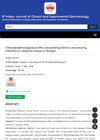 February 2019 in “IP Indian journal of clinical and experimental dermatology”
February 2019 in “IP Indian journal of clinical and experimental dermatology” Psychological stress is a major factor in the onset and severity of alopecia areata, with atopic individuals being more prone to develop it.
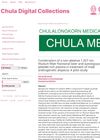 January 2019 in “Chulalongkorn Medical Journal”
January 2019 in “Chulalongkorn Medical Journal” Using a special laser and platelet-rich plasma together is safe and improves hair growth in men with hair loss.
Different medications improved various PCOS symptoms and quality of life in Pakistani women, but did not significantly help with excessive hair growth.
 September 2018 in “The Medical Journal of Cairo University/The Medical Journal of Cairo University”
September 2018 in “The Medical Journal of Cairo University/The Medical Journal of Cairo University” Polarized light therapy helps hair regrowth in alopecia areata patients.
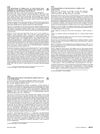 August 2018 in “Journal of The American Academy of Dermatology”
August 2018 in “Journal of The American Academy of Dermatology” The study concluded that a new method can effectively assess scalp sun damage in balding men, which increases with age and sun exposure.
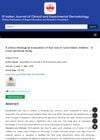 July 2018 in “IP Indian journal of clinical and experimental dermatology”
July 2018 in “IP Indian journal of clinical and experimental dermatology” Hair loss in rural Indian children is often due to malnutrition, poor grooming, stress, and infections.
 July 2018 in “Elsevier eBooks”
July 2018 in “Elsevier eBooks” Lichen Planopilaris is a hair loss condition best treated early with various medications, including hydroxychloroquine, to prevent permanent baldness.

Cocor Bebek leaf extract may promote hair growth better than minoxidil at high concentrations.
 April 2018 in “The journal of investigative dermatology/Journal of investigative dermatology”
April 2018 in “The journal of investigative dermatology/Journal of investigative dermatology” Aging causes changes in scalp cells that can negatively affect hair health.
 April 2018 in “Journal of Investigative Dermatology”
April 2018 in “Journal of Investigative Dermatology” The conclusion is that the cornea has two types of stem cells, with Lrig1+ cells being key for renewal in aging corneas, independent of CD44.
 March 2018 in “Trends in Immunotherapy”
March 2018 in “Trends in Immunotherapy” Combining triamcinolone acetonide with immunotherapy can help regrow hair in some alopecia totalis patients.
 January 2018 in “Figshare”
January 2018 in “Figshare” Curcuma aeruginosa extract lotion effectively reduces underarm hair growth.
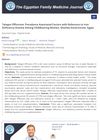 January 2018 in “The Egyptian Family Medicine Journal”
January 2018 in “The Egyptian Family Medicine Journal” Iron deficiency anemia is significantly linked to hair loss in childbearing women, and taking iron improves the condition.

Older women's scalp cells show changes that could contribute to hair thinning.
 September 2017 in “Journal of Investigative Dermatology”
September 2017 in “Journal of Investigative Dermatology” The combination of Stemoxydine® and Resveratrol improves hair density in women with Female Pattern Hair Loss.
 July 2017 in “British Journal of Dermatology”
July 2017 in “British Journal of Dermatology” The document concludes that scalp conditions have various causes and can present in many different ways.
June 2017 in “Journal of the American Academy of Dermatology” Plucked hair can help diagnose pemphigus vulgaris early.
 June 2017 in “Journal of the American Academy of Dermatology”
June 2017 in “Journal of the American Academy of Dermatology” Tofacitinib is effective and safe for treating severe alopecia areata and related conditions.
May 2017 in “Psychiatric news” BPH medications may increase the risk of self-harm and depression, especially in the first 18 months.
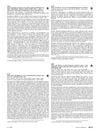 May 2017 in “Journal of The American Academy of Dermatology”
May 2017 in “Journal of The American Academy of Dermatology” The new baby shampoo and wash with stearic acid is safe and potentially effective for nourishing babies' skin.
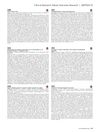 May 2017 in “Journal of Investigative Dermatology”
May 2017 in “Journal of Investigative Dermatology” 10% carbamide peroxide is safe and effectively reduces mild to moderate acne.
April 2017 in “Al-Azhar Medical Journal” PRP is an effective and safe treatment for alopecia areata.
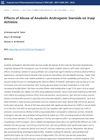 March 2017 in “Iraqi Journal of Pharmaceutical Sciences”
March 2017 in “Iraqi Journal of Pharmaceutical Sciences” Abuse of anabolic steroids in Iraqi athletes leads to negative effects on hormones, liver and kidney function, blood sugar, and cholesterol levels.
January 2017 in “Deleted Journal” Hair transplantation surgery now offers natural, lasting, and safe results.
 October 2016 in “Journal of the Dermatology Nurses’ Association”
October 2016 in “Journal of the Dermatology Nurses’ Association” Polycystic Ovary Syndrome (PCOS) affects 6%-15% of women of reproductive age, causing symptoms like acne and hair loss, and increasing the risk of type 2 diabetes and heart disease; it's managed through diet, exercise, and medications like Metformin and hormonal contraceptives.
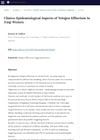 October 2016 in “Mağallaẗ Kulliyyaẗ al-ṭibb Baġdād”
October 2016 in “Mağallaẗ Kulliyyaẗ al-ṭibb Baġdād” Most Iraqi women with telogen effluvium did not have a clear cause for their hair loss, and few had significant thinning.
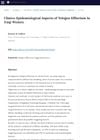 October 2016 in “Mağallaẗ Kulliyyaẗ al-ṭibb Baġdād”
October 2016 in “Mağallaẗ Kulliyyaẗ al-ṭibb Baġdād” Most Iraqi women with telogen effluvium had no clear cause for their hair loss, and few had significant thinning.
























